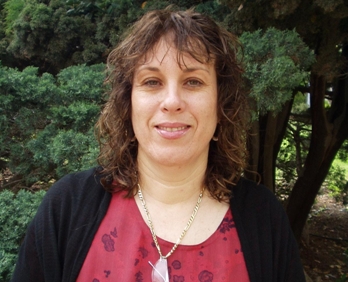| | 25 April, 2007
| | Hebrew University research shows developmental problems for siblings of autistic children | |
 | | Prof. Nurit Yirmiya |
|
Younger siblings of children with autism are at risk to suffer from delayed verbal, cognitive and motor development in their early childhood years.
This finding is the result of a research project carried out by a staff headed by Prof. Nurit Yirmiya and doctoral candidate Yifat Gamliel of the Hebrew University of Jerusalem and Dr. Marian Sigman of the University of California, Los Angeles.
In their research, they found that some siblings of children with autism – ranging from fourteen months to four and half years -- were diagnosed with delayed verbal, cognitive and motor development. After the age of four and a half, most of those children were able to close the gap between their development and that of other children of the same age who had siblings with normal development, except for some small delays in verbal abilities.
The results of this research have been published in a special issue of the Journal of Autism and Developmental Disorders that was devoted entirely to the subject of diagnosis of autism in very young children. The issue was edited by Prof. Nurit Yirmiya and by Prof. Sally Ozonoff of the M.I.N.D. Institute at the University of California, Davis. They reported finding that 30 percent of those children with older siblings with autism were found to have delayed development in the three areas studied, as opposed to only 5 percent in a comparison group (children whose siblings did not suffer from autism).
The reasons for this phenomenon, says Prof. Yirmiya, can be traced to the genetic tendency of children in the former group to carry an endophenotype of autism (an hereditary characteristic that is normally associated with some condition but is not a direct symptom of that condition).
“Siblings of children with autism are likely to inherit genes that will cause a weakened expression of autistic symptoms,” she explained. These can take the form of delayed linguistic abilities, difficulties in expressing feelings and in making eye contact, and in social interaction.
Prof. Yirmiya said that such problems cannot be traced to an imitation of the behavior of the older sibling with autism. “The children who were examined in the research had other models of behavior which they could have imitated besides their siblings with autism, such as parents, friends or other (normal) siblings in the family with whom they had frequent contact,” she asserted.
The research tested the behavior of 39 children in Israel who had older siblings with autism. The research also involved a comparison group of children with older siblings of normal development. The children in both groups were examined at the ages of four months, 14 months, 24 months, 36 months and 54 months.
The results of the research showed that there were no significant differences between the two groups at the age of four months. Most of the developmental delays were found to appear in the first group from the age of 14 months until the age of four and half. After that, most of those in the group of siblings with autism were able to close the gap between them and the children in the comparison group, with the exception of a few children who persisted with some difficulties in verbal expression.
Prof. Yirmiya said that follow-up work should be undertaken into the elemental school years in order to determine whether there are any problematic symptoms, such as learning difficulties, since these sometimes come to the surface at a later age.
Prof. Yirmiya said that while the research does illustrate some developmental problems with siblings of children with autism, the fact is that to a large extent these problems resolve themselves at a young age without any intervention. Therefore, it is not clear whether prevention programs should be recommended for such children, especially considering the burden that the families are already experiencing.
|
Downloadable File: autism.doc |
|


